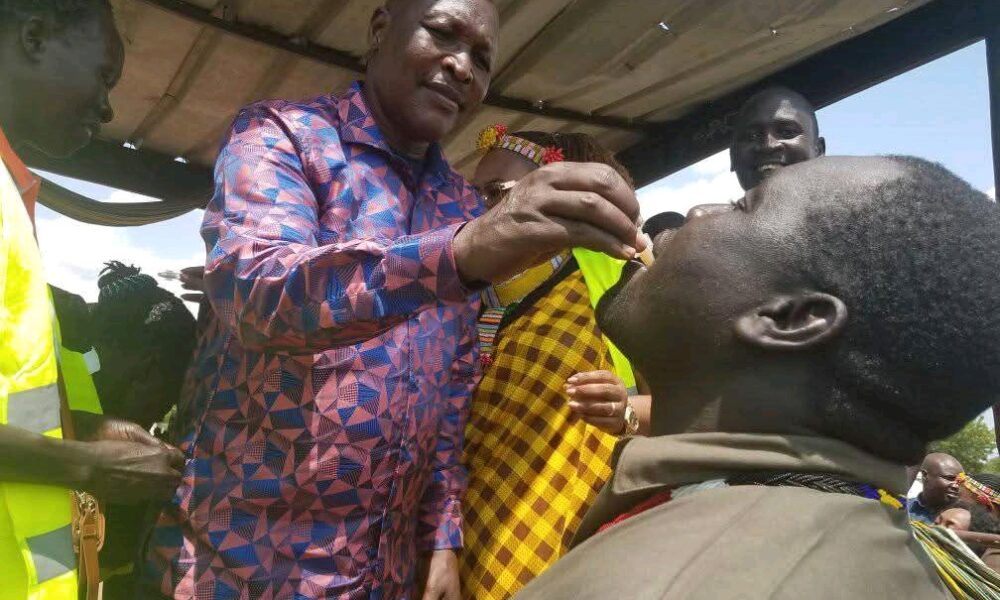By Kei Emmanuel Duku
Eastern Equatoria State Governor Louis Lobong Lojore launched an oral cholera vaccine campaign over the weekend in Kapoeta Municipality, part of Greater Kapoeta.
The campaign is slated to expand to other counties in the state that have reported cholera cases late last year.
The launch event saw the presence of National Minister of Health Sarah Cleto Rai and National Minister of Environment and Forestry Josephine Napwon Cosmas.
During the launch, Governor Lojore highlighted the three major challenges facing Eastern Equatoria State: hunger, erratic rainfall caused by climate change leading to low crop yields, and the recent cholera outbreak.
“Our three great enemies are cholera, hunger, and insufficient rainfall, which demand our keen attention,” Governor Lojore stated. “With the vaccine, cholera will be no more, but we will still be left with hunger.”
The Governor appealed to national leaders, especially the National Ministry of Humanitarian Affairs and Disaster Management, to provide relief food items to communities whose livelihoods depend on agriculture but whose crops have wilted due to limited rainfall.
He also urged the National Ministry of Environment and Forestry to provide timely information to farmers in Eastern Equatoria State regarding expected rainfall and drought periods.
Governor Lojore believes this will help farmers plan their cultivation according to changing rainfall patterns, ensuring better harvests.
He further appealed to partners, particularly those providing food relief, to supply aid to affected areas.
Dr. Kidende Mapour Akech, a Public Health Expert, stated that a nationwide cholera campaign was announced between October 2024 and June 2025.
During this period, 77,000 cases were reported across the country, with 96% successfully treated and discharged. In Eastern Equatoria State, the cholera outbreak was first confirmed in Magwi County before spreading to Ikwoto, Kapoeta, and Torit.
The cholera oral vaccine is expected to be rolled out to an additional 39 counties nationwide. Across South Sudan’s ten states and three administrative areas, a total of 1,300 deaths were registered in eight counties, including those in Eastern Equatoria State.
During the launch, health experts also pointed out several challenges faced by pregnant mothers and other patients in the state.
These include inadequate maternity wards, limited healthcare personnel, insufficient medical supplies, and delayed salaries, which primarily affect Kapoeta Civil Hospital and other lower healthcare units in remote areas.
Meanwhile, South Sudan National Minister of Health, Sarah Cleto Rai, reiterated the government’s commitment to addressing some of these challenges facing the healthcare sector in Eastern Equatoria State.




